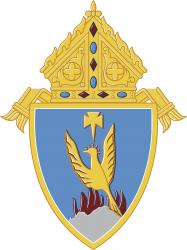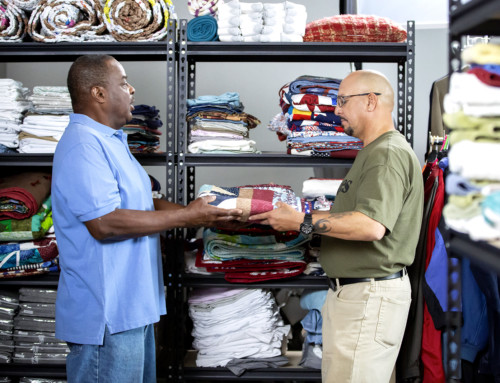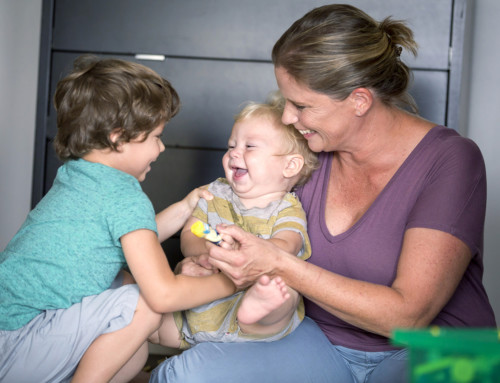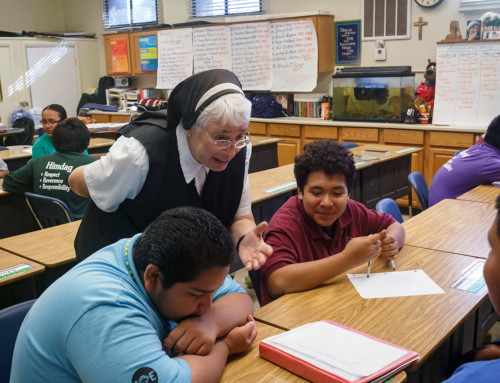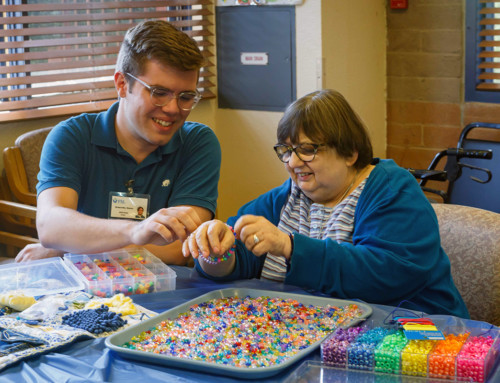Charity and Development Appeal
The Charity and Development Appeal supports more than 70 educational, charitable and spiritual organizations which counsel, feed clothe, house, educate and comfort those in need throughout the four counties in the Diocese of Phoenix.
This story by Tony Gutiérrez was originally published in The Catholic Sun, the newspaper of the Diocese of Phoenix.
Men discerning the priesthood for the Diocese of Phoenix will now spend a significant portion of their formation locally. Bishop Thomas J. Olmsted announced March 26 that the diocese is establishing Nazareth House Seminary House of Formation, a two-year college-level seminary, set to be opened this summer.
Nazareth House is named after the hometown and household setting in which Jesus “grew in wisdom and stature, and in favor with God and man” under the care of St. Joseph and the Blessed Virgin Mary (Lk 2:52). It will be located at the vacant convent at St. Gregory Parish.
“I think that the current state of the Church has made us answer a lot of questions about our formation, and it’s made us rethink it and look at it more clearly,” said Fr. Paul Sullivan, director of Vocations and rector for the new seminary. “I believe that we will be able to say we are doing what is best for these young men.”
The men discerning at the seminary will share meals, household responsibilities and faith in Jesus Christ while completing two years of initial academic studies at nearby Phoenix College. Canonically, seminarians are “to be provided with that formation in the humanities and science by which the youth in their own region are prepared to pursue higher studies” (234.2).
The household model of formation is based on a similar model being used at St. John Vianney Seminary in Denver, where seminarians from the diocese have been studying for more than a decade.
“We’re watching a transition between millennials to this next generation — Gen Z, or the iGen, and we’re seeing that their needs are different,” said Fr. Sullivan. “The next generation, that has grown up with significantly more technology at their fingertips, has brought with it certain challenges that we will want to address.”
Instituting a household model of formation in Phoenix would prepare seminarians to transition to the major seminary with a clearer understanding of the diocese. The house will be a low-tech house, Fr. Sullivan said. “Studies show that excessive time before screens affects your attention span and your ability to be relational, and the life of the priest is essentially relational,” he said.
In his role, Fr. Sullivan, who will also continue serving as pastor of Sacred Heart Parish in Phoenix, will live in community with the seminarians, including regular prayer and taking his turn to cook the meals. Joining him will be Fr. David Loeffler, who, in addition to his role as chaplain for Bourgade Catholic High School and diocesan director of Ecumenism, will serve as the director of spiritual formation for the seminary. Estevan Wetzel, who is scheduled to be ordained a transitional deacon May 26, will serve as a house deacon for the seminary, in addition to assisting Fr. Sullivan at Sacred Heart.
“The guys are going to see priests in our house that are on mission,” Fr. Sullivan said. “We believe that the more the seminarians are in contact with priests of our diocese and our parishes, the more they will be able to see priesthood as it truly is; a life of prayer and service of God’s people.”
Chuck Wold, president of the Serra Club of the East Valley, said he and his fellow Serrans were excited about the news.
“Now these guys are going to be able to be exposed to our parishes,” said Wold. “It’s going to give a great opportunity for our community and our parishes to be exposed to some of these young men.”
Teresa Ornelas, who has been a member of the East Valley Serrans for 14 years, wrote a letter to the bishop in December expressing the need for a local seminary to be able to form young men in holiness.
“Being able to form young men in holiness regardless if they become priests or stay single or become a father is paramount to our diocese,” Ornelas said, noting that the seminary will be beneficial for those who discern out. “Having holy young men is the most important thing in building families and building all of our parishes.”
Seminarians will take their general liberal arts courses before entering a year of intensive spiritual formation and further academic work in philosophy and theology at St. John Vianney.
The diocesan tribunal has been assisting to ensure certain criteria required of all seminaries are met, said judicial vicar Fr. Chris Fraser. In addition to having a rector and spiritual director, there will also be a finance officer, and confessors will be readily available. The seminary also has to have written statutes and a rule of life.
“There would be an absolute structure to the day: the expectations, holy hours, Mass, sacramental celebrations, meals together, housekeeping detail, those kinds of things,” Fr. Fraser said. “Statutes have to be written, which basically detail out what the positions of authority are, and what the responsibilities of seminarians are. The statutes would have things like codes of conduct, a code of ethics and certain kinds of agreements that [seminarians] … would have to agree to as being a seminarian of the diocese, living at this seminary.”
Fr. Fraser said the new model follows the principle of subsidiarity.
“This may or may not be something that would be helpful or relevant in some dioceses in the Philippines or Africa. But it seems like for our country, our culture, our challenges and where our young people are coming from, that this kind of model really makes sense. You’re really trying to help them understand who they are, grow up and mature in a way that’s healthy,” he said. “The Holy Spirit seems to be guiding seminary formation such that there is a greater need to get to know the man and make sure that he knows who he is.”
The former convent that will be the home of Nazareth House was established in 1951 for the Institute of the Blessed Virgin Mary sisters, who served at the parish school for much of the 20th century. It has 16 rooms, enough to facilitate the six to 10 seminarians expected to live there each year.

